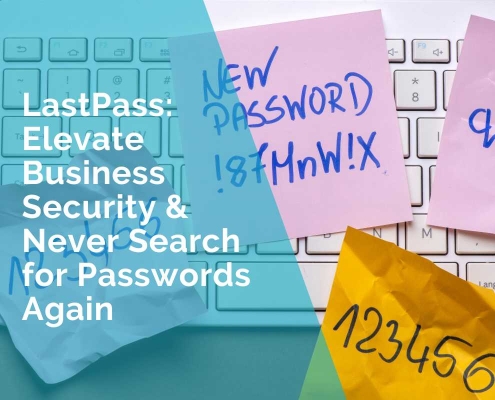Why Virtual Receptionists Are Essential For Small Business Success In Australia
Small businesses can’t afford to miss calls or delay responses. Customers expect instant, professional service, whether they’re calling after hours, submitting an online enquiry, or requesting a callback.
With rising competition and higher service standards, businesses that fail to respond promptly risk losing leads and damaging their reputation. This is where virtual receptionists come in. It is a cost-effective, scalable solution that ensures no opportunity slips through the cracks.
Key Takeaways
- Small businesses risk losing leads and damaging their reputation by missing calls or delaying responses.
- Virtual receptionists provide a cost-effective, scalable solution for 24/7 professional call handling.
- Australian businesses use virtual receptionists to meet rising customer expectations and improve first impressions.
- Integrating virtual support reduces overhead, boosts responsiveness, and helps businesses stay competitive.
The Rise of Virtual Support for Small Business
A virtual receptionist refers to a remote professional who handles calls, messages, and customer inquiries for your business via cloud-based systems. Unlike an in-house receptionist, they work offsite, providing 24/7 availability without the cost of full-time staff. Here are the key benefits of virtual support for small businesses:
- Cost-efficient: No office space, salaries, or employee overheads.
- Always available: Never miss a call, even after hours or on weekends.
- Flexible & scalable: Adjust services as your business grows.
Post-COVID, remote work and lean operations have made virtual receptionists essential. They help small businesses save money, boost professionalism, and stay competitive without traditional staffing costs. They are perfect for startups, tradespeople, and consultants who need reliable customer service without the expense.
Why Australian Small Businesses Are Turning to Virtual Receptionists
Australian small businesses are increasingly turning to virtual receptionists to meet rising customer expectations for professional, responsive service from the very first interaction. Virtual receptionists provide a critical first impression of reliability and professionalism that can make or break customer relationships. Key industries benefiting include:
- Trades and home services: Electricians, builders and handymen use virtual receptionists to capture urgent repair calls after-hours
- Health and wellness: Physiotherapists, psychologists and massage therapists ensure appointment bookings never get missed
- Professional services: Lawyers, accountants and business consultants maintain an executive-level phone presence
- Home services: Cleaners, landscapers and pest control operators convert more inquiries into jobs
The post-COVID shift toward leaner business operations has made virtual receptionists particularly valuable for Australian SMEs. With local, trained professionals handling calls, businesses can project the polished image of a larger company without the expense of full-time staff.
This solution is recommended for mobile professionals and sole traders who need to focus on client work rather than phone management while ensuring every potential customer receives prompt, professional attention.
Key Benefits for Web-Driven Businesses
Businesses must prioritize seamless customer interactions to stay competitive. A well-optimized website is no longer just about aesthetics. It’s about delivering instant support, reducing friction, and keeping visitors engaged. By integrating smart communication tools, businesses can significantly improve customer satisfaction, streamline operations, and minimize lost opportunities.
Below, we explore the key advantages of a web-driven approach, focusing on how enhanced responsiveness, seamless integrations, and proactive support contribute to long-term success.
1. Improved Customer Satisfaction and Responsiveness
Customers expect efficient and prompt service when interacting with a business online. Delayed responses or lack of support options can lead to frustration and lost sales.
Implementing live chat, AI-powered chatbots, and automated follow-ups ensures that customers receive immediate assistance, reducing wait times and improving their overall experience. A responsive system not only keeps users engaged but also builds trust, encouraging repeat visits and long-term loyalty.
2. Seamless Integration with Business Websites and Contact Forms
A smooth connection between communication tools and a company’s website is essential for efficiency. When contact forms, live chat, and CRM systems work together seamlessly, businesses can manage inquiries more effectively.
Automated ticketing systems route customer queries to the right department, while chatbots can hand off complex issues to human agents when needed. This level of integration eliminates manual processes, reduces errors, and ensures no customer request falls through the cracks.
3. Reduced Bounce Rates from Missed Leads or Delayed Replies
Visitors often leave a website when they can’t find quick answers or face long response times. Proactive engagement tools, such as targeted pop-ups or instant chat invitations, can capture leads before they exit.
Automated follow-ups for abandoned carts or unanswered inquiries help re-engage potential customers, turning missed opportunities into conversions. By minimizing delays and offering real-time assistance, businesses can significantly lower bounce rates and improve retention.
4. Supporting Your Website with Smart Communication
A great user experience extends beyond design. It requires strong back-end support to match. Fast-loading pages, personalized interactions, and omnichannel support create a cohesive journey for customers.
When users can effortlessly switch between email, chat, or phone support without repeating information, their satisfaction increases. Aligning front-end UX with efficient back-end systems ensures that every interaction is smooth, consistent, and hassle-free.
How Virtual Receptionist Solutions Improve Trust & Credibility
Virtual receptionist solutions enhance trust and credibility by providing professional, consistent, and prompt communication, which are key factors in building customer confidence. With a live, friendly voice answering calls and handling inquiries 24/7, businesses appear more reliable and accessible, reinforcing their reputation.
Many businesses now rely on virtual receptionist solutions to ensure that every online enquiry is handled with care, even outside regular hours. This can help address customer needs promptly, though the effectiveness may vary depending on the provider.
Features like call scripting, multilingual support, and personalized greetings further elevate professionalism, making clients feel valued from the first interaction. By maintaining high responsiveness and a human touch, virtual receptionists help businesses stand out as dependable and customer-focused.
Signs You’re Ready to Upgrade to a Virtual Receptionist
Running a business is demanding, and as it grows, managing calls, messages, and administrative tasks can become overwhelming. If you’re struggling to keep up, consider a virtual receptionist.
Here are some key signs that your business could benefit from professional call-handling support along with real-world scenarios where this solution could make a difference.
1. You’re Missing Calls or Customer Messages
Imagine this: Your phone rings nonstop during lunch hour, but you’re in back-to-back meetings or out on a job site. By the time you check voicemails, you’ve missed a potential client who needed an urgent quote, and they’ve already moved on to a competitor.
Or perhaps customers are sending messages through your website or social media, but they go unanswered for days, leading to negative reviews. A virtual receptionist ensures no call or inquiry slips through the cracks, capturing every opportunity even after hours.
2. You’re Juggling Too Many Roles
As a small business owner, you wear many hats: salesperson, customer service rep, scheduler, and more. But when you’re stuck fielding calls about appointment rescheduling or basic FAQs, you don’t have time for revenue-generating tasks.
For example, a busy HVAC technician might spend half their day answering calls instead of servicing clients, slowing down operations. A virtual receptionist can handle call screening, appointment booking, and FAQs, freeing you up to focus on what truly grows your business.
3. Your Business Growth Is Limited by Availability
Your small business can only scale as fast as you can respond to leads. If you’re a solo entrepreneur or have a small team, you might turn away work simply because you can’t answer calls outside business hours.
For instance, a therapist booking new clients may lose potential patients who call in the evenings when they’re unavailable. Or a real estate agent might miss out on urgent inquiries because they’re in showings all day. A virtual receptionist extends your availability, ensuring you never miss a lead, helping you grow without hiring full-time staff.
4. Your Customer Service Is Slipping
When callers are frequently left on hold, sent to voicemail, or given rushed responses, their experience suffers. Poor communication can damage your business reputation, especially if clients expect prompt, professional interactions.
For example, a law firm handling sensitive cases can’t afford to let calls go unanswered, as clients may be in urgent need of assistance. A virtual receptionist ensures warm, professional call handling, providing reassurance and accurate message-taking so no client feels ignored.
5. You’re Spending Too Much on Overhead
Hiring a full-time, in-house receptionist comes with salary, benefits, and training costs, which are expenses that may not make sense for a growing business. If you need coverage but can’t justify the overhead, a virtual receptionist offers a flexible, cost-effective alternative.
A startup medical practice may not have the budget for an on-site receptionist but still needs reliable call management for appointment scheduling and patient inquiries. A virtual solution provides expert support without the long-term commitment or high costs.
Choosing the Right Provider
Upgrading to a virtual receptionist can transform your business operations—but only if you choose the right provider. Not all services are created equal, so it’s important to select one that aligns with your business needs. Here’s what to look for when making your decision, along with key questions to ask before outsourcing.
1. Trained Professional Staff
Your virtual receptionist is often the first point of contact for customers, so they must represent your brand professionally. Look for providers that hire and train their staff in customer service, call handling, and basic problem-solving.
For example, if you run a medical practice, your receptionist should understand HIPAA compliance and handle sensitive patient inquiries with care.
Ask potential providers:
- “What training do your receptionists undergo?”
- “Do you offer industry-specific call handling?”
- “Can I customize call scripts to match my brand voice?”
When you choose a service with skilled, well-trained receptionists, every customer interaction becomes seamless, reinforcing your brand’s professionalism and values while building trust and loyalty from the start.
2. Integration Capabilities
A great virtual receptionist service should seamlessly integrate with your existing tools, including your CRM, scheduling software, or messaging platforms.
For instance, if you use Calendly for appointments, your receptionist should be able to book slots directly without double-booking. Or if you rely on Slack or email for urgent messages, they should forward inquiries accordingly. Key questions to ask:
- “What software or tools do you integrate with?”
- “Can you sync with my calendar or booking system?”
- “How do you handle follow-ups or task assignments?”
Before choosing a service, ask about software compatibility, calendar syncing, and follow-up processes to ensure smooth, efficient operations.
3. Industry Experience
Some businesses have unique needs. Legal firms require discretion, e-commerce stores need order-tracking support, and contractors may need 24/7 emergency dispatch. A provider familiar with your industry will handle calls more efficiently.
For example, a virtual receptionist for a law firm should know how to screen potential clients and schedule consultations appropriately. Ask:
- “Have you worked with businesses in my industry before?”
- “Can you name similar clients you’ve supported?”
- “How do you handle industry-specific challenges (e.g., high call volumes, urgent requests)?”
Providers familiar with your field can better handle specialized needs like legal client screening, e-commerce support, or contractor dispatch.
Always ask about their experience with similar businesses and their strategies for managing industry-specific challenges to ensure professional and efficient service.
Bonus: Questions to Ask Before Outsourcing
Before committing, clarify these key details to avoid surprises:
- “What are your response times for live calls and messages?”
- “Is after-hours or weekend coverage available?”
- “How do you handle call overflow during peak times?”
- “What’s your pricing structure—per call, per minute, or flat rate?”
- “Can I review call logs or recordings for quality assurance?”
To find a virtual receptionist service that truly supports your business, look beyond call handling. The right investment will improve customer experience and contribute to long-term business growth.
Wrap-Up: Modern Tools for a Competitive Edge
Smart outsourcing, such as a virtual receptionist, can help small businesses grow without being weighed down by administrative tasks. By using modern customer service solutions, you free up time to focus on strategy, improve client experiences, and scale operations effortlessly. Don’t let outdated systems hold you back.
Explore flexible support tools designed to evolve with your ambitions and drive real results. With the right virtual receptionist technology partner, you can achieve more while staying lean and responsive to customer needs. This strategic approach to customer service helps future-proof your business while maintaining the personal touch that sets you apart.
***************
Rhonda May, NB












